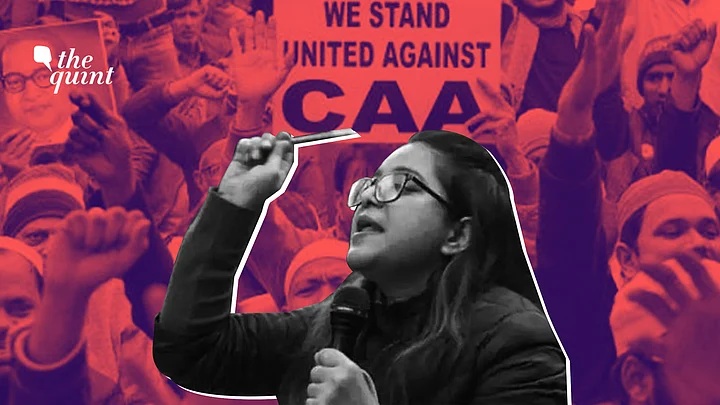Jamia Coordination Committee member Safoora Zargar was released from Delhi's Tihar Jail late on Wednesday, 24 June, a day after she was granted bail by the Delhi High Court in connection with a Delhi violence case.
The Jamia Millia Islamia student and anti-CAA activist had been asked to furnish a personal bond of Rs 10,000 and was instructed to follow two conditions.
Firstly, she should not indulge in activities for which she is being investigated and which are an infraction of law. Secondly, she should not hamper the investigation or influence witnesses.
This happened after the Solicitor General Tushar Mehta, appearing for Delhi Police, told the court that the state agrees on ‘humanitarian grounds’ to release Safoora on regular bail. They also argued that this would have no bearing on the merits of the bail plea, and it shall not set a precedent for other cases.
What Had Happened on 22 June?
Mehta had argued that thirty nine deliveries have taken place in Tihar Jail over the last ten years and that adequate medical care was being given to Safoora.
Further asserting that her pregnancy cannot be grounds to grant bail.
“The law does not make any distinction in this regard. It is stated that the law unambiguously contemplates provisions to deal with pregnant criminals, which itself indicates that the law permits use of sanction against this class of offenders,” read the status report from 22 June. Mehta had also argued that as the founder of the Jamia Coordination Committee Zargar played an important role and was a key link of the conspiracy since the beginning.
Safoora’s Fourth Attempt for Bail
This was the fourth time that Zargar’s lawyers were moving court for bail ever since she was arrested on 10 April. The first time was on 18 April, when UAPA had not yet been invoked, which was rejected on 21 April after the invocation of the anti-terror law. Then again, on 2 May, a bail application was moved, but withdrawn after arguments in court. The third bail application was rejected by the court on 4 June.
After the third bail application was moved, arguments between the public prosecutors and Zargar’s lawyers lasted for eight hours over two days, on 30 May and 4 June.
At the end of the hearing, she was denied bail by additional sessions judge (ASJ) Dharmender Rana. While dismissing the plea, Rana had said he ‘did not find merits in the bail application’. The arguments made in court can be read here.
(At The Quint, we question everything. Play an active role in shaping our journalism by becoming a member today.)
